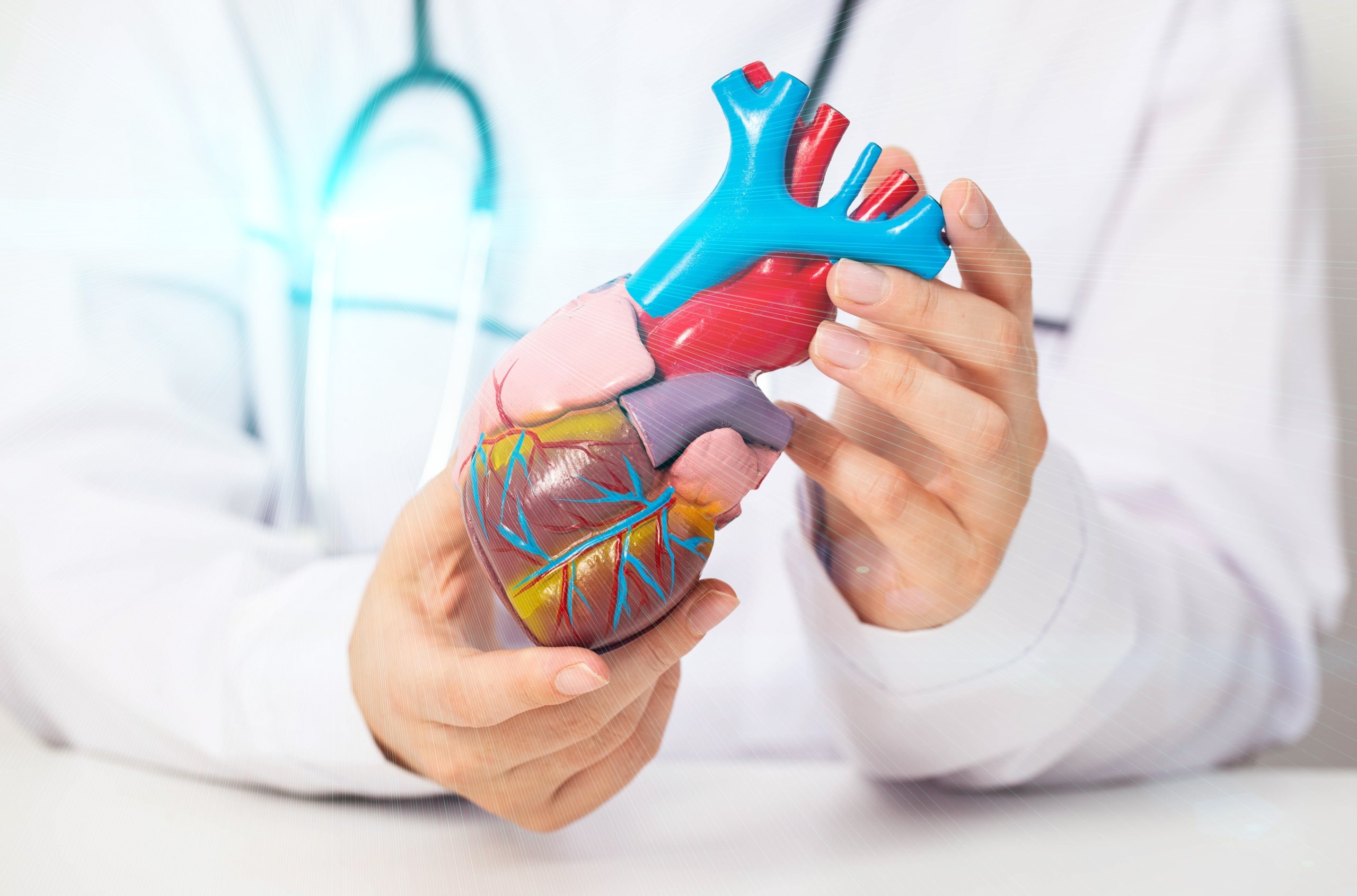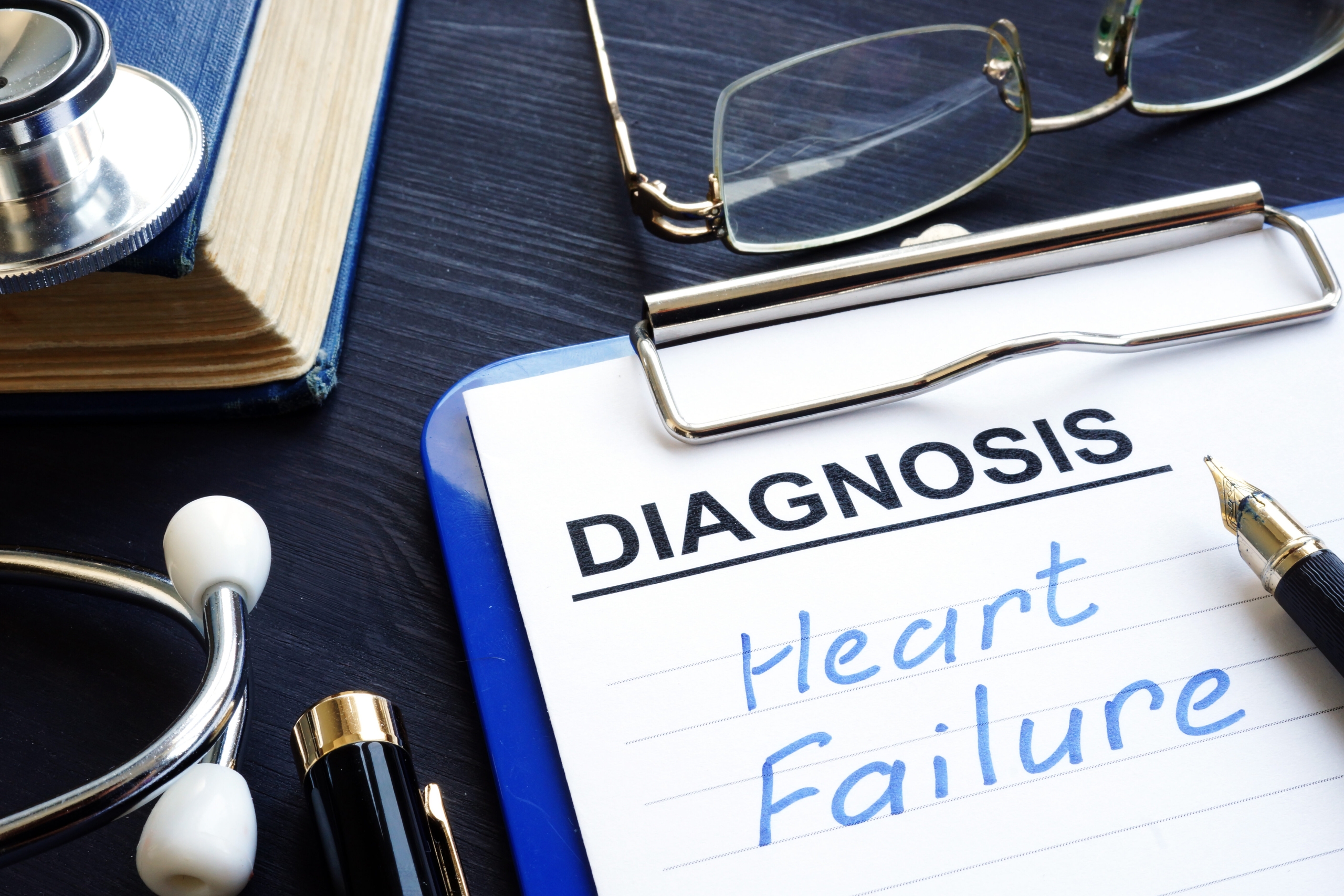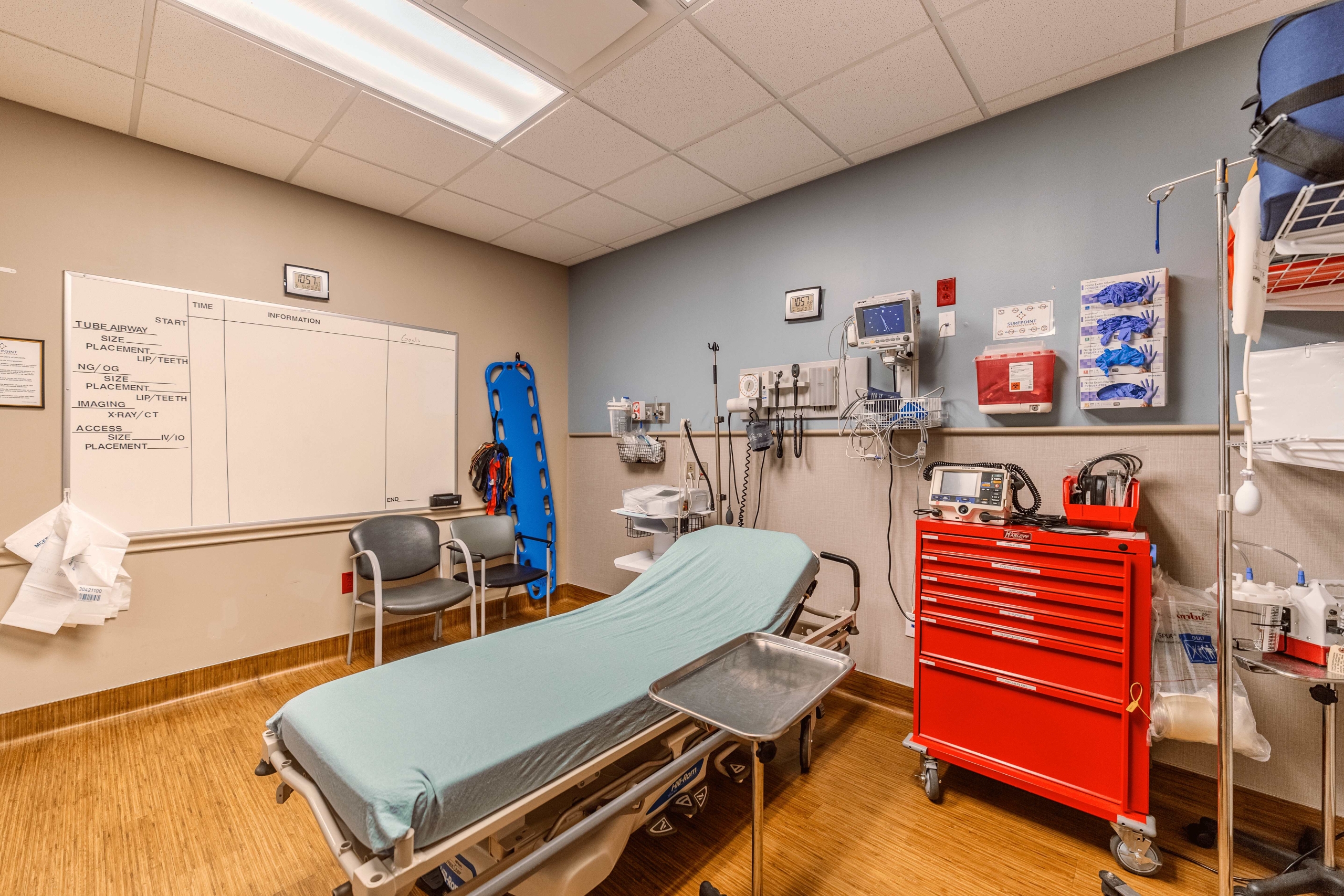Emergency Room for Heart Failure Care
Heart failure is a medical emergency. Get cardiac care without the wait – no appointment needed.
At Surepoint Emergency Centers, we recognize the urgency of heart failure situations. We know that every moment is crucial when it comes to heart issues and finding heart failure treatment near you. That’s why our committed team of doctors and nurses are here 24/7, ready to help. Whether you’re feeling chest pain, having trouble breathing, or experiencing any heart failure symptoms, we’re equipped with the right care and technology to put your health first, no matter the hour.

What is Heart Failure?
Hearing “heart failure” might sound alarming, but it doesn’t mean your heart suddenly stops working. Instead, it signifies that your heart isn’t pumping as effectively as it should, limiting the supply of oxygen-rich blood to your body’s cells. There are two types of heart failure: systolic failure, where the heart struggles to pump blood effectively, and diastolic failure, where the heart is stiff and has difficulty filling up with blood. Recognizing the early symptoms and getting immediate heart failure treatment is vital and can be life-saving. If you’re experiencing heart failure symptoms or have concerns about heart failure, call 911 or your local Surepoint ER right away.
Surepoint is Open 24/7 Near You!
If you think you are having a cardiac emergency, please visit the ER nearest you. We are open 24-7, no appointment needed.
What Causes Heart Failure?
As we grow older, our hearts naturally lose some ability to pump blood. However, heart failure occurs when health issues put extra strain on the heart. Conditions that damage the heart or force it to work excessively can lead to heart failure. Certain lifestyle choices like smoking, obesity, consuming high-fat and high-cholesterol foods, as well as being physically inactive, heighten the risk of heart problems linked to heart failure. Common heart failure causes include:
- Coronary Artery Disease (CAD)
- Myocardial Infarction (Heart Attack)
- Hypertension (High Blood Pressure)
- Cardiomyopathy
- Valve Disorders.
- Infections
- Diabetes
- Obesity
- Excessive Alcohol Consumption
What Are the Signs and Symptoms of Heart Failure?

Heart failure symptoms differ from one individual to another, affecting over 6.5 million Americans; however, many diagnosed with heart failure can effectively manage the condition, allowing them to lead fulfilling lives. Heart failure symptoms range from mild to severe; early stages might present flu-like signs such as body aches, fatigue, fever, chills, and a decreased appetite. As heart failure progresses, your heart becomes weaker and you may experience more pronounced signs and symptoms of heart failure including:
- Shortness of breath during normal activities
- Persistent coughing or wheezing
- Fatigue and weakness
- A feeling of suffocation while sleeping or laying flat and/or waking up
- short of breath
- Sudden weight gain from fluid retention
- Increased heart rate
- Swelling in feet, legs, or abdomen
Should I Go To The ER For Heart Failure?
Experiencing discomfort or pain in your chest is a common concern, and it can happen to anyone, regardless of age, gender, or lifestyle. While sometimes it might be due to minor issues like indigestion or muscle strain, it could also indicate a more serious condition, such as heart failure. It’s understandable to feel uncertain and ask yourself, “Should I seek medical help for chest pain?” To make an informed decision, closely monitor your symptoms. If they persist or worsen over time, it’s crucial to seek medical attention promptly. Consider these factors when deciding whether to visit the emergency room for heart failure:
- Sudden Weight Gain
- Swelling
- Breathing Issues
- Digestive Problems
- Fatigue
- Respiratory Problems
- Heartbeat Changes
- Chest Discomfort
- Breathing Troubles
- Sleep Changes
- Reduced Urination
- Confusion or Restlessness
- Loss of Appetite
Your well-being matters most. If you’re worried about heart failure, don’t wait. Trust your instincts and seek help right away. Head to a Surepoint emergency room near you or dial 911 immediately.
Heart Failure Treatment at Surepoint ER

If you are experiencing a heart failure emergency, rest assured Surepoint ER can help. Like any emergency, our goal is to provide you with the initial care and stabilization so you can feel better, faster. This care can include an evaluation and assessment of your condition, followed by any necessary testing in our onsite labs. From there, it may be determined that you need oxygen therapy, IV fluids, or other medications. Our emergency care team may wish to keep you overnight for observation or further care. We can also transfer you to a local hospital if necessary. We handle the arrangements so you don’t have to.
Our Tips For Preventing Heart Failure
To prevent heart failure, adopting healthy lifestyle habits is key to reducing the risk of heart problems. Identifying and addressing potential risk factors like high blood pressure or coronary artery disease is crucial. Fortunately, many heart failure patients can be effectively treated, enabling them to lead fulfilling lives. To promote heart failure prevention, consider the following lifestyle changes:
- Maintaining a healthy weight.
- Consuming heart-friendly foods.
- Engaging in regular exercise.
- Effectively managing stress.
- Avoiding tobacco and alcohol.
- Steering clear of recreational drugs.
- Addressing other health conditions that heighten your risk.
Your Health Can’t Wait: Don’t Ignore the Symptoms of a Heart Failure
Your health should never be a gamble. Whether you think you might be having a heart attack, experiencing chest pain, or any heart failure symptoms, our emergency centers are here for you around the clock, 24/7. Click the link below to find a Surepoint ER near you and get the care you need.





